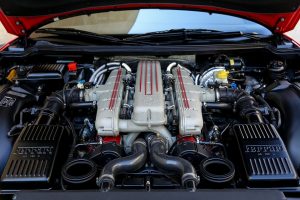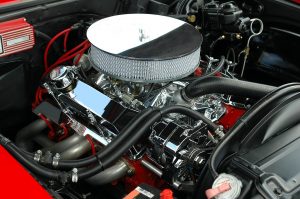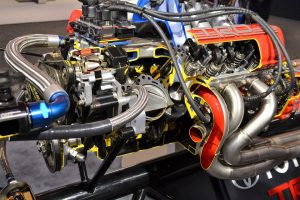cONNECT with us
Now!
Get the
Best Diesel Engine Service

Constant Communication
We communicate with you effectively so that we can understand your needs.

professional Service
We provide professional services that cannot be found anywhere else in the market.

Direct Support
Get real-time support everytime, everyday. we are here to fulfil your unique needs!

Local Solutions
We are based in Clyde and surrounding areas; hence we are a local expert.

Call Back
When you fill thecontact form on this page, we shall get back to you as soon as possible.

Skillful Team
We have a team of skilled technicians ready to provide professional solutions.
Diesel Engines: What You Need To Know
 If you own a diesel-powered car, you probably value the fundamental qualities of this type of engine. More torque, better fuel economy, easier maintenance are a few of the attributes of owning a diesel-powered car. Still, some drivers grumble about the engine’s weak power, particularly when accelerating from a full stop. What you might not know is that a diesel motor can be tweaked to produce more energy without damaging fuel economy. Let’s have a look at diesel engines and what you can do to squeeze out more power.
If you own a diesel-powered car, you probably value the fundamental qualities of this type of engine. More torque, better fuel economy, easier maintenance are a few of the attributes of owning a diesel-powered car. Still, some drivers grumble about the engine’s weak power, particularly when accelerating from a full stop. What you might not know is that a diesel motor can be tweaked to produce more energy without damaging fuel economy. Let’s have a look at diesel engines and what you can do to squeeze out more power.
Thanks to the work of one man, Rudolf Diesel, we have a choice when it concerns driving. Besides hybrid or rotary engines, the main way most cars run is via a petroleum-powered internal combustion engine. However, with Diesel’s 1892 patent of the engine that bears his name, diesel power has played a considerable role in powering buses and trucks throughout the nation. Some passenger cars, primarily pickups, are likewise diesel-powered, giving drivers a choice to petroleum.
Diesel engines have the following benefits over their petroleum counterparts:
• Diesel use air compression to produce combustion versus the air/fuel mixture required by Petroleum powered cars and trucks. This characteristic means that diesel motor do not need spark plugs and therefore do not have to be tuned up.
• Diesel fuel has a greater fuel density than petroleum leading to fuel economy boosts of 20-30% over comparable petroleum-powered designs.
• Diesel engines are cheaper to maintain as they have fewer parts vs. a petroleum engine. The life-span of a diesel engine is likewise considerably longer.
If it is torque you need, particularly for pulling a boat, camper, or equipment, then a diesel motor has the advantage. It is slower, particularly when starting from a dead stop, but when climbing hills or going over bridges, your diesel-powered car can handle the challenge.
So, why aren’t more cars in Clyde diesel-powered?
Some of the reasons include:
Stricter emissions control standards: Diesel engines pollute more, so not many makers have improved upon the innovation to produce an environmentally friendly engine. However, several upcoming engines might change all of that.
Not enough power. Yes, a common complaint, even with turbo-diesel, is that the engines are not powerful enough. Most chauffeurs are accustomed to getting on the highway with a minimum amount of effort. With a diesel engine, it can take as much as twice as long to get up to full speed.
Luckily, several aftermarket product designers are helping drivers squeeze out more power from their diesel engines. Efficiency developers, are helping motorists in seeing a good spike in horse power as well as increases in torque. The beauty of a few of these aftermarket parts is that they do not hurt fuel economy. In fact, some claim to help improve it.
Yes, the number of diesel-powered passenger cars presently on Australian highways is minimal; nevertheless, with more recent, cleaner, and more powerful engines on the way, you might soon find yourself choosing a diesel-powered car too.
Remember, we have offices in Clyde and Granville, Rosehill, Harris Park, Camellia, Holroyd, Parramatta, Auburn, Silverwater, Merrylands, Mays Hill.
Diesel Exhaust Systems For Efficiency
 If you are looking for a diesel exhaust system to enhance your performance, the choice can be a difficult one. Diesel gets more and more popular all the time, and because of this, there are many viable choices on the market for your diesel exhaust. In addition to diesel exhaust, many chips and tuners will help enhance your performance, which makes the choice of exhaust much more frustrating. Fortunately, there are a couple of brands that are popular for providing the best in diesel exhaust for performance each time. If you are aiming to improve your Chevy Duramax, Dodge Cummins, or Ford Powerstroke engine, you can absolutely maximize your diesel performance with the best exhaust.
If you are looking for a diesel exhaust system to enhance your performance, the choice can be a difficult one. Diesel gets more and more popular all the time, and because of this, there are many viable choices on the market for your diesel exhaust. In addition to diesel exhaust, many chips and tuners will help enhance your performance, which makes the choice of exhaust much more frustrating. Fortunately, there are a couple of brands that are popular for providing the best in diesel exhaust for performance each time. If you are aiming to improve your Chevy Duramax, Dodge Cummins, or Ford Powerstroke engine, you can absolutely maximize your diesel performance with the best exhaust.
Magnaflow
Magnaflow is certainly a brand that is well recognized and appreciated in the diesel exhaust market. Magnaflow has really embraced diesel performance, and they have a tried and real formula that matches the right amount of air with the measured amount of fuel for the most power. A Magnaflow diesel exhaust system will help your diesel engine maintain a regular temperature to lengthen the life of your engine. With a Magnaflow diesel exhaust system, you have the advantage of years of experience in diesel performance on your side, and you know that the exhaust system will enhance all Dodge Cummins engines.
Magnaflow is among the most recent contributors to the four-inch performance diesel exhaust that has become standard. Magnaflow has likewise presented a stainless steel mandrel-bent system that brings a lifetime warranty, polished muffler, and five-inch tip. The Magnaflow diesel exhaust system is one that has made its mark and is an excellent choice for your car.
MBRP
MBRP is also another excellent diesel performance company that can offer you the best in diesel exhaust systems. The MBRP Dodge Cummins exhaust is considered an essential if you are working with a Dodge Ram. The MBRP assures optimum gains with a direct bolt-on application that comes with a four-inch turbo downpipe. The MBRP will simply add horse power, torque, enhanced fuel economy, and will lower exhaust gas temperatures. This is a quality purchase for anyone looking to enhance diesel performance.
Bully Dog
Bully Dog is another impressive diesel exhaust company that will provide tailor-made diesel performance systems for your Ford, Doge, or Chevrolet truck. Bully Dog will assure immediate enhancements in horse power, throttle response, and pulling torque, not to mention the exhaust system looks unbelievable. Bully Dog exhaust systems likewise lower gas temperatures by more than 200 degrees, which is perfect when you are pulling heavy loads. The Bully Dog performance exhaust packages will likewise increase gas mileage– a good exhaust system from a great company.
Banks
If you are looking for a diesel performance exhaust system from a company that understands diesel, Banks is an outstanding company. They‘ve been around since 1897, enhancing the use of diesel for performance big and small. Banks is a company continually implementing innovative methods with a quality and consistency rarely discovered.
As you can see, there are a great deal of choices for your diesel exhaust in Clyde, depending upon the type of truck you have, and what you wish to see in the way of performance. These are all first-class brands that you’ll likely be happy with.
Diesel Engine Principles for Newbies
 Diesel engine principles are pretty straightforward for the experienced mechanic but what about routine everyday individuals who have never made the effort to learn more about a diesel engine and how it works?
Diesel engine principles are pretty straightforward for the experienced mechanic but what about routine everyday individuals who have never made the effort to learn more about a diesel engine and how it works?
In this article, we are going to discuss in layperson’s terms the standard principles of a diesel engine. Let’s start, shall we?
What’s the difference between the petrol engine and a diesel engine?
The first thing you should know is a petrol engine and a diesel engine are totally different. A Petrol engine is built much lighter than the much heavier developed diesel engine and operates on an air/fuel mixture combined with a high energy spark that is timed to fire up the air/fuel mixture inside each engine cylinder at the accurate time creating power and torque [turning force] which drives your car.
A diesel engine uses high compression [intake air that is compressed/squished] into a really small space inside each cylinder causing severe heat! This is called ‘Heat of Compression’ which sparks a really fine high-pressure mist of diesel fuel that is injected into the cylinder at the exact time.
So you now know that a gpetrol engine needs a high energy spark to run while a diesel uses ‘Heat of Compression’
The four-stroke principle
Every engine today operates on four strokes or four cycles- both these terms mean the exact same. Here is how the four-stroke diesel engine operates.
1. Intake Stroke:
Intake valves in the cylinder head open enabling pressurized air to enter each cylinder while the piston is traveling downward.the the pressurized air supply is made possible by the TURBOCHARGER which presses air into the intake system giving the diesel engine a boost of air to keep up with an instantaneous injection of fuel
2. Compression Stroke:
When the piston starts to make its way back up the valves close which traps the intake air in the cylinder which allows compression to take place, the HEAT OF COMPRESSION is reached when the piston reaches the top of the cylinder, the diesel fuel is then injected into the cylinder at the accurate time.
3. Power Stroke:
After injection takes place a surge takes place in the cylinder because of the mix of heat and atomized diesel fuel. This causes the piston to be forced downward which produces torque and the horse power required from a common diesel engine.
4. Exhaust Stroke:
After the power stroke, the piston moves upward once again while the exhaust valves open enabling the formerly fired up gases to escape to the atmosphere out the exhaust system.
As discussed before, each cylinder goes through this precise series over and over in a set firing order. For example, a 6 cylinder diesel engine has a firing order of 1- 5- 3- 6- 2- 4 which is the order that each cylinder passes, following the 4 strokes discussed above. This series has been crafted to enable the diesel engine to run smoothly with no imbalance.
There is much to learn about diesel engines and a lots of info online. If you have ever thought about buying a vehicle with a diesel engine you have made a prudent decision! The additional cost will be to your advantage, so it is recommended that you learn more about diesel engines before you decide which one to select.
Our offices are in Granville, Rosehill, Harris Park, Camellia, Holroyd, Parramatta, Auburn, Silverwater, Merrylands, Mays Hill and Clyde